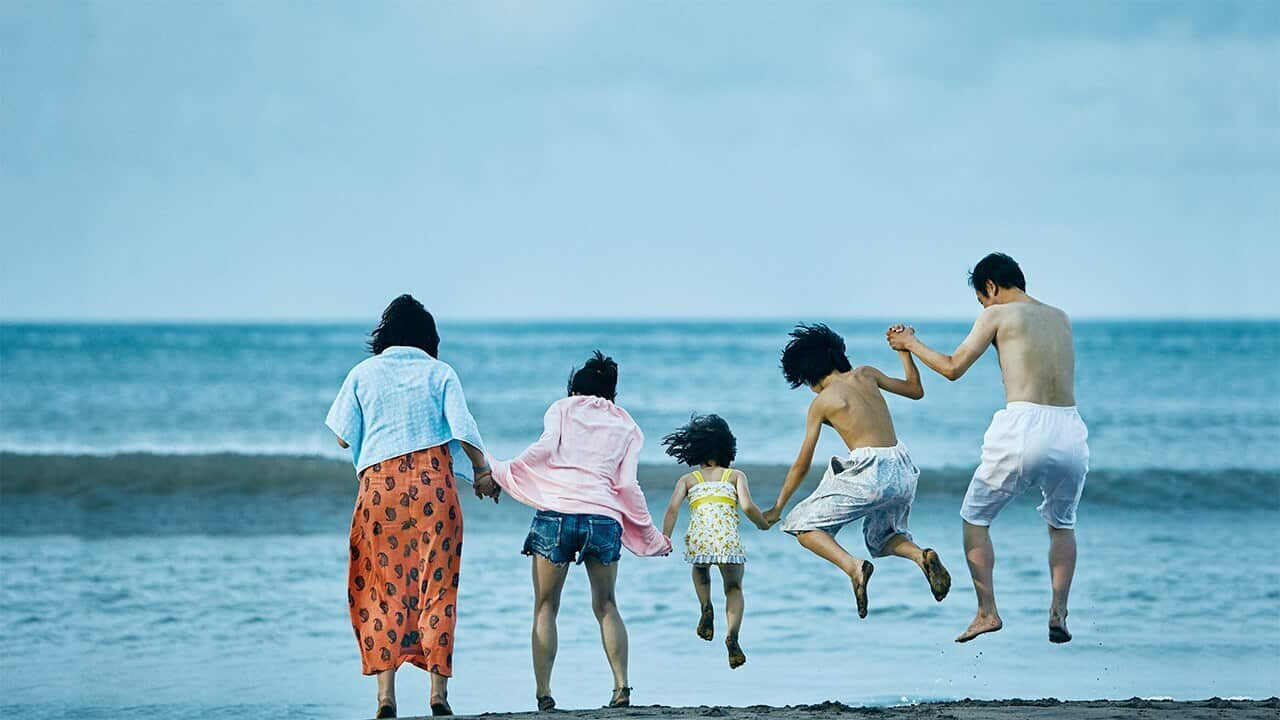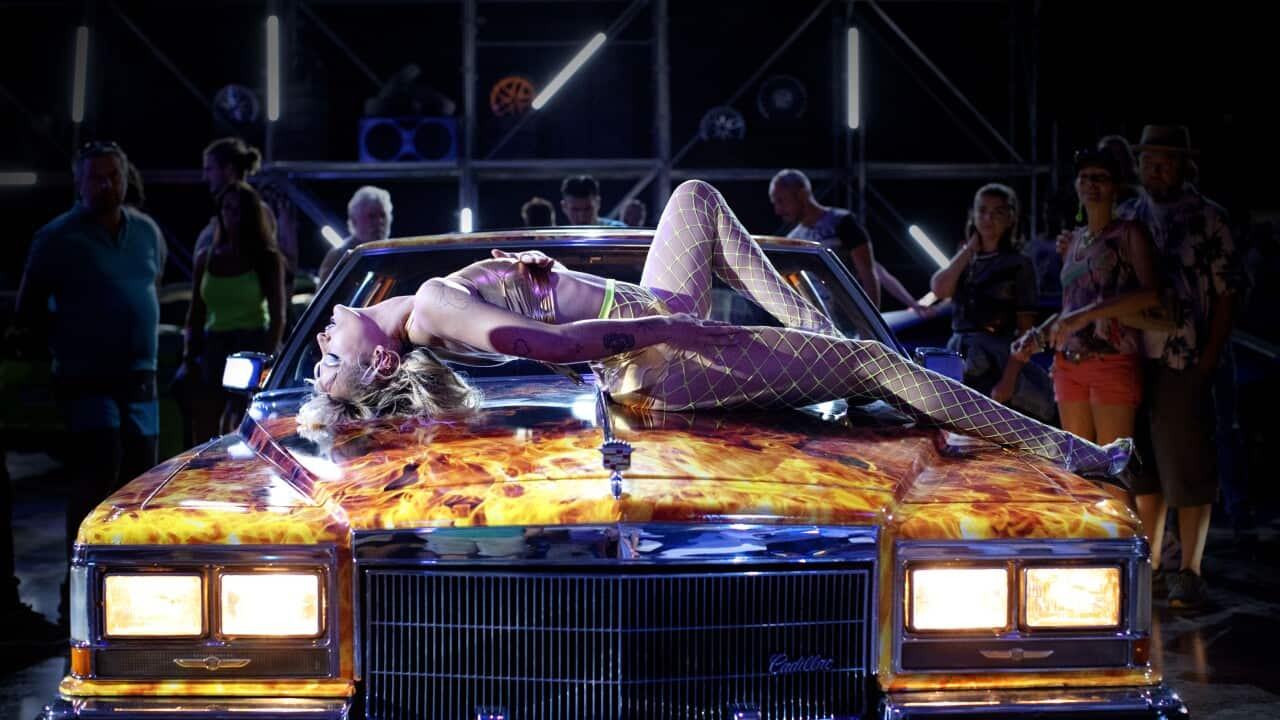With Phoenix, Christian Petzold’s sixth collaboration starring Nina Hoss, the 51 year-old German director makes his most personal film ever. And it was the most challenging. Based on a script he wrote with Harun Farocki, and adapted from French crime writer Hubert Monteilhet's 1963 novel, Return From the Ashes, he tells a story set just after World War II, which initially looks spare and simple, a kind of slow-burning film noir, but which actually focuses on the German identity that was borne out of the war.
Hoss plays Nelly, a Jewish chanteuse whose career had been shut down by the Nazis. She was sent to Auschwitz and managed to survive though her face has been so disfigured that she has to undergo extensive surgery, which renders her unrecognizable, even to herself. Her friend, Lene (Nina Kunzendorf), has obtained visas for them to live in Palestine, but Nelly protests that she is not Jewish and is intent on re-connecting with her pianist husband Johnny (Ronald Zehrfeld, from ). Nelly drifts through the half-demolished Berlin and finds Johnny in the nightclub Phoenix where they once both performed. He doesn’t recognise her, though acknowledging a resemblance, he hatches a plan for her to pose as his wife so they can get to her money. For Petzold, Johnny is typical of so many Germans at the time.
"As someone born in the '60s I can feel everything that happened in 1945," explains Petzold. "Nobody had empathy for the Jews and the survivors. We didn't want to see it. We paid for Israel but we didn’t want to look at them. We had no feelings, no emotions or we didn't want to show them. The adults in my youth who surrounded me as teachers are a bit like the people at the end of the movie. They can drink, they can smoke, they can hear music, but something’s wrong with them. They are not natural. This is something that Fassbender shows in all his movies, those cold Germans, and this is one of the subjects of Phoenix. You can see that the men loved you once and lost control of the good of love. These men are so under control now that there is no sensitivity, no empathy. They’re dead."
Your face is your identity and when it is destroyed or changed, you haven’t an identity any more. If you haven’t an identity, you are no longer a part of society.
During his research, Petzold was shocked to see the destroyed faces from the Second World War and from the First World War: "After the First World War, they put thousands of people with destroyed faces into a gated community in a part of Berlin called Invalidenstadt. Facial reconstruction was so hard; they didn't have plastic surgery at this time. So they put these masks on them because they are monsters and nobody wants to see them any more. It’s a like the guy with half a face in Boardwalk Empire. There were many people like him. Nelly’s face is not destroyed like that, but her face is broken. For me, it’s tougher to lose your face because your face is your identity and when it is destroyed or changed, you haven’t an identity any more. If you haven’t an identity, you are no longer a part of society." In separate interviews with Hoss and Petzold, I note how I’d lived in Berlin for three years in the early '90s after the fall of the Berlin Wall. I came to the conclusion that most of my friends were the children of Nazis and it had proved a difficult thing for them to live with. One man’s father who had been an officer in the SS never spoke of the war and was generally closed off from his son.
In separate interviews with Hoss and Petzold, I note how I’d lived in Berlin for three years in the early '90s after the fall of the Berlin Wall. I came to the conclusion that most of my friends were the children of Nazis and it had proved a difficult thing for them to live with. One man’s father who had been an officer in the SS never spoke of the war and was generally closed off from his son.

Source: SBS Movies
While Hoss, the daughter of a former Greens politician father and an actress mother says she "didn't have that experience", my comments hit close to home for Petzold. It all came out like an emotional torrent right at the end of our calm interview. "My grandfather was in the SS, yeah," he admits. "He was in the Leibstandarte, the personal security of Hitler. He was killed by a Russian commando in May 1945 in Berlin because he was a killer. He always told my mother, my little mother when she was four, how he was the tennis teacher of Eva Braun. My father’s family were anti-fascists. They were Christians and for five or six years they were singing the whole day. They didn't fight against the Nazis, but they were in their bunkers singing. Why didn't you fight as your neighbours the Jews were killed? You were sitting there with your shit Bible and singing - you think this is resistance? We’ve had really, really long discussions."
Petzold, a member of the Berlin School of historically informed, emotionally challenging realist filmmakers, has focused on repressed women in his movies. Barbara (2012) was similar to Phoenix with its story of a repressed woman pursuing a relationship with a shadowy man during the Cold War; in Jerichow (2008), inspired by the Postman Always Rings Twice, Hoss played an abused wife, while in Yella (2007), a kind of remake of the American film Carnival of Souls (1962), her character was abused too. Hoss was awarded the best actress prize for Yella at the Berlin Film Festival, while Petzold won the directing Silver Bear for Barbara. The two films made the pair a force to be reckoned with, not only in Germany, but around the globe.
Petzold says he has chosen women protagonists in an attempt to remove himself from his tough scenarios and as a lover of Hollywood melodramas and suspense thrillers, particularly the films of Douglas Sirk and Alfred Hitchcock (Monteilhet's novel was a riff on Vertigo), he makes movies that are hugely accessible but with a German twist.
He describes film-making as a kind of exorcism, which has probably increased in its intensity over the years. "It started when I was 30, when you look back at your life for the first time. Working with all these intelligent actors and the discussions during the readings is like being in a social analytical session. Through talking you’re getting richer."
Hoss held a huge respect for the Phoenix screenplay and she admits it was her hardest film with Petzold. She delivers a restrained, mesmerising portrayal of a very wounded human being, whom she says, "is fighting her way back into life." "At the beginning I wanted to break it down, to simplify it, to make it believable for myself. Why is she staying with Johnny for so long? What state is she in that she needs this amount of time to become the person you see at the end?"
"It was different this time because I had to fight a lot with this character. It was all so raw and I think Christian didn't expect that to happen. I don't think he knew that he’d written such an emotional script. He was overwhelmed that there was so much emotion going on and of course that made him see how he could capture that."
As with Barbara, Petzold filmed in Kirchmöser, what he calls "a forgotten town" between Berlin and Brandenburg with architecture from the '20s, '30s and '40s. "I thought, ‘Oh my God I’m sitting in the same kitchen," Hoss recalls. "It was a bit weird but the longer we were there the better it got. Then we went to Poland for some of the outside shots. Germany has changed too much to film everything there."
Hoss, who sings Kurt Weill and Ogden Nash's 1943 ballad 'Speak Low' in the movie and who has also sung on the Berlin stage, says she would love to have experienced Berlin in the '20s. "It was a fabulous time, an out-there very daring time. It was fun, risky and people were exploring lots of things. Of course, a lot of the lightness that was there is gone because all the Jewish intellectuals and artists had to leave or were murdered. That part is gone for good, but very slowly it’s coming back and I have a feeling it’s not so miserable."
Watch 'Phoenix'
Friday 17 December, 10:15pm on SBS World Movies
Sunday 19 September, 3:10am on SBS World Movies
Sunday 19 September, 3:10am on SBS World Movies
Now streaming at SBS On Demand
M
Germany, 2014
Genre: Drama
Language: German, English
Director: Christian Petzold
Starring: Nina Hoss, Ronald Zehrfeld, Nina Kunzendorf







